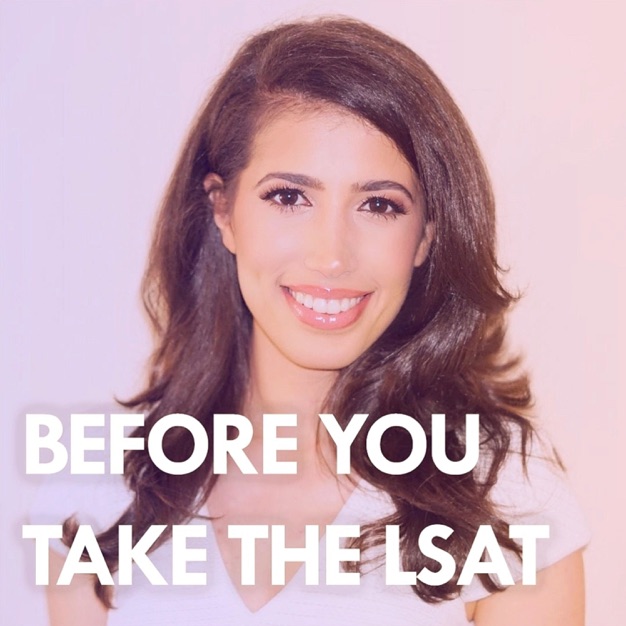
Before You Take the LSAT
Doreen Benyamin
Before You Take the LSAT is a podcast dedicated to providing insight into law as a career path.
- 31 minutes 10 secondsFrom High School Dropout to Harvard Law: Founding a Multimillion Dollar Legal Tech Startup
At the age of 14, Jake Sussman dropped out of high school with no clear plan for his future. By the age of 20, Jake was already taking his first class at Harvard Law School. While at Harvard, Jake received job offers from two of the top 3 consulting firms, a top 10 law firm, and a venture-backed legal tech startup. In this interview, Jake talks about his unique path getting to where is now as the founder of one of the top legal tech companies, Evisort.
---
About Evisort:
Amine Anoun, Jerry Ting, and Jake Sussman built Evisort to use AI to automate contract reviews for lawyers. Evisort is backed by tech luminaries including Mark Zuckerberg, Bill Gates, and Jeff Bezos through the venture capital fund of Village Global and the San Francisco-based Amity Ventures.
2 February 2024, 3:52 am - 35 minutes 28 secondsFrom Post Uni to UCLA Law: T14 Full Scholarship Negotiation & BigLaw with Unremarkable Grades
Interview featuring UCLA Law alumna, Jason Ingber. Jason shares how he negotiated his way to a full scholarship at UCLA, why he applied to 30 law schools, and how he used "chutzpah" to land a position in BigLaw despite unremarkable grades.
26 January 2024, 1:29 am - 43 minutes 54 secondsFrom Prelaw to Second Year Columbia Law Student: Expectations vs. Reality
IG: @BeforeYouTaketheLSAT
My former student Liza is a first generation college student, professional and American. English is her second language. Liza, who served as a Fulbright in Taiwan, is trilingual, speaking both Mandarin Chinese and Spanish. She received her B.A. in Political Science and International Relations from Wellesley College, where she focused primarily on counterinsurgency tactics and U.S. military strategy during the Iraq war.
In this follow-up interview, Liza provides updates on her journey since being admitted to Columbia Law School. She shares her experiences as a second-year law student, detailing how she secured her spot on the prestigious Columbia Law Review, her involvement in a specialized moot court, and the process behind deciding where she wants to work upon graduating
19 January 2024, 4:02 am - 48 minutes 4 secondsBefore You Take the Bar: Lessons Learned from Failing the California Bar Exam
Today's guest Brian Hahn is the Founder of "Make This Your Last Time" (MTYLT). Brian describes his website as "a candid, no-BS look at bar exam preparation." He has helped 1,000s of students pass the bar. Having experienced failure in his initial bar exam attempt, Brian developed effective techniques and strategies that enabled him to pass on his next try. He now shares his expertise and insights with others to help them achieve success on their bar exams. In this episode, Brian provides valuable resources and guidance to bar takers, sharing what to focus on as you're studying for the bar and how to spend your time.
https://www.makethisyourlasttime.com/
11 January 2024, 7:44 pm - 1 hour 41 secondsFrom Wellesley College to Columbia Law: My Former LSAT Student Shares What She Wishes She Knew
IG: @BeforeYouTaketheLSAT
How do I study for the LSAT while working full time?
Does mindset really matter when I'm studying for the LSAT?
Is being first generation an advantage?
My former student Liza is a first generation college student, professional and American. English is her second language. Liza, who served as a Fulbright in Taiwan, is trilingual, speaking both Mandarin Chinese and Spanish. She received her B.A. in Political Science and International Relations from Wellesley College, where she focused primarily on counterinsurgency tactics and U.S. military strategy during the Iraq war.
In this episode, Liza shares how she overcame obstacles to increase her score. She conquered a plateau and ultimately fulfilled her dream of attending Columbia Law School.
Episode time stamps:
2:00 Role of luck vs hard work (Talking about Liza's family history)
4:45 Perspective on being first generation (Is being ESL a strength?)
7:37 Liza's outlook & mindset
8:27 Turning dream of attending Columbia Law into a reality (how to tackle large, overwhelming goals)
9:35 Methodical approach to applying to law school
11:17 What was the skillset that you wanted to improve and develop? How did you know you want to pursue a legal career?
14:15 Coming from an immigrant family, did your parents have strong opinions about which career path they wanted you to pursue?
14:45 Figuring out your own career path ("Why do you work so hard?")
16:00 Liza's response to those who doubted her abilities (How "Dreams from My Father" by Barack Obama inspired Liza)
19:18 Liza's LSAT journey
20:45 How was Liza able to balance working full time and studying? (Liza talks about how many hours she studied per day, how she scheduled her day, and how she ultimately decided to take one day off per week to avoid burnout)
22:05 How long did Liza study? (Liza shares how she would have approached the LSAT differently knowing what she knows now.)
22:40 How did Liza decide she wanted to do tutoring?
23:43 Why did Liza decide to work with Doreen? (The role of ambition in achieving your goals.)
25:15 What are some of the tools Liza learned in tutoring that allowed her to overcome stagnation and see an improvement in her score? highly recommend listening to this portion
27:22 Audience question: Any tips for first generation applicants feeling demoralized about the application process? (Keeping sight of your why, not just for the process and also for the application)
29:07 Motivation is a myth. ("I'm not just doing this for myself, but for my community at large")
29:57 Audience question: Liza's diagnostic score
30:05 Audience question: How long did it take for you to see progress?
30:22 Liza shares an hour by hour breakdown of her day in the life when she was studying for the LSAT and working full time!
31:58 The mindset required to do well on the LSAT and on Liza's legal journey so far. ("Mindset is everything")
33:29 How you talk about the LSAT matters. ("I've never said anything bad about the LSAT, ever.)
34:02 Studying during covid.
35:07 Applying to Columbia; why Columbia?
38:40 Liza's LSAT tutoring testimonial
39:50 Where to study
41:11 What do you wish you knew before you took the LSAT?
42:18 Navigating not having prelaw experiences on application
43-50 Audience Q&A (activities that helped Liza on her application; Fulbright; 46:00 approaching professors about LOR, Letters of Recommendation; 47:53 practice area; 48:24 how many years out of undergrad; 48:57 does age matter when applying to law school?)
50:15 Well-rounded applicant vs well-rounded class
50:55 How Liza approached her personal statement
52:52 Any resources or practical tips for prelaw students?
55:05 How would you have approached the LSAT differently knowing what you know now? Law school application?
56:15 What advice would you share with someone who's earlier on in their journey? (including book recommendations)
4 January 2024, 8:01 pm - 56 minutes 42 secondsFrom Quitting BigLaw to Building Her Dream: How Cindy Zuniga-Sanchez Paid Off 215K of Debt in 4 years
Are you curious about how to rise to the top 10% of your class and become a member of the law review? Or how law school exams differ from undergrad? How to become debt-free as a recent law school graduate? How about how to avoid debt before you even get into law school?
Today's guest covers it all. Cindy Zuniga-Sanchez grew up the daughter of immigrants living in a one bedroom apartment in the Bronx with her parents and sisters. She attended undergrad on a full scholarship (including room and board), but by the time she graduated law school — with a partial scholarship, at the top 10% of her class, and as a member of the law review — she had accumulated over $215,000 debt. In our conversation, Cindy shares how she went from over $200,000 in debt to debt-free in 4 years, why she left a $300,000+ salary, along with the prestige and security of a BigLaw associate position, to bet on herself by expanding her own personal finance business. She wrote the book on financial freedom and generational wealth, literally, but started her journey with a simple google search: "how can I get out of debt?". Cindy shares insights from a path spanning from premed to interning for Hilary Clinton and Senator Chuck Schumer to creating her brand, ZeroBasedBudget, which has over 65,000 followers on Instagram and has been featured in national publications including Forbes, Business Insider, and Bloomberg Opinion. She has also been featured in national and local television including Good Morning America, The Rachael Ray Show, and Telemundo.
She is incredibly humble and insightful. Whether you're prelaw, a recent law school graduate, or a seasoned attorney, this is not an interview you want to miss.
Time stamps:
+ 1:24 How can we avoid going into debt as a law school student?
+ 5:30 Writing a personal finance book from the perspective of a daughter of immigrants, Latina, originally from a low income community in the Bronx
+ 7:30 How coming from a family of immigrants can be an advantage
+ 11:00 Cindy's perspective on BigLaw
+ 12:15 Overview of Cindy's path to law school (from premed with a full scholarship at Stony Brook University to Hilary Clinton's intern to dreaming of becoming the first US Latina Senator)
+ 13:30 How did Cindy graduate at the top 10% of her class? What was it like doing a part time program at Cardozo Law?
+ 15:00 The biggest thing that changed Cindy's life; How to take a law school exam
+ 17:00 Law school exams are important, but it doesn't stop there
+ 17:50 Outlining law school courses + utilizing office hours
+ 19:00 how to set and achieve goals (effectively) - in law school and budgeting; systems and habits; Atomic Habits (James Clear)
+ 22:10 The value of buffers; balancing the reading in law school; trying to cram outlines; identifying your triggers; curbing your anxiety
+ 24:45 What did you learn about BigLaw being in BigLaw as a commercial litigation attorney and what do you wish you knew before working in BigLaw? How does the OCI process work? What is a mock interview?
+ 29:10 How Cindy chose which BigLaw offer to accept and how she chose her practice area within law
+ 31:45 Mindset; low income community, 1 br apartment in the Bronx, first generation Latina; leaving a well-paying secure job; believing in yourself; not knowing any lawyers before law school; imposter syndrome; the American Dream
+ 34:23 How do you make the calculation to leave a 300k+ salary to become a full time entrepreneur? Sabbatical funds, emergency funds, her exact revenue, her online course (100K+ revenue), having a runway, 4x revenue
+ 39:54 What are the first steps for law school graduates who are in debt?
+ 45:18 Budgeting is just a plan for your finances
+ 45:54 3 Actionable Tips for the Listeners
+ 46:04 Start with Why
+ 48:17 The 30 Day Spending Challenge (date, amount, am I happy with how I spend my money?)
+ 51:15 Building the Habit
+ 53:23 The Book, "Overcoming Debt, Achieving Financial Freedom"; "What's your net net net worth" - Drake
23 May 2023, 10:10 am - 50 minutes 54 secondsFrom NYU Law to Biglaw: Mordy4Prez shares his path to 70M+ views, 125k+ followers, top 10 law school, top 10 law firm, and beyond.
When Mordechai "Mordy" Weiss was in high school, he had 60 absences in his senior year alone. A few short years later, he graduated from a top law school, worked at a top 10 Biglaw firm, and amassed over 125k followers on TikTok with over 70M+ views. How did he do it?
Nothing is off limits in this interview with Mordy, where we delve deep into his path leading up to where he is currently — in-house counsel at a successful real estate development company in NYC.
I hope you enjoy this interview and I'd love to hear your feedback! Please message me on Instagram @BeforeYouTaketheLSAT or you can email me, Doreen, at [email protected].
Time Stamps:
+ 1:13 Mordy has had a startup valued at 1.5M, recently graduated from a top 10 law school, worked at a top 10 Biglaw firm, and now works in-house at a real estate development firm all while amassing over 125k followers on TikTok and 70M views — how does he balance it all and what drives him?
+ 3:18 Role of gratitude in his path
+ 4:48 How did Mordy go from being waitlisted at every law school he applied to, to being accepted to one of the top 10 law schools in the country?
+ 7:38 Current landscape of law school admissions (as it relates to waitlists); how competitive is it now?
+ 8:18 How can you set yourself apart in the law school admissions process; Mordy's advice on the application process
+ 10:41 From 60 absences in his senior year to a top law school student — how? (Mordy discusses ADD/ADHD)
+ 14:22 Study/focus hacks — phones, study spots, etc.
+ 15:01 Did Mordy experience imposter syndrome in law school? What was his mindset in law school?
+ 17:35 Growth mindset, "fake it 'til you make it", and why Mordy views imposter syndrome as a good thing
+ 19:48 What did his study schedule look like? + backing mindset with the right work ethic
+ 20:44 Mordy's intentions/goals for 2023
+ 22:08 How does Mordy think about the different areas of life he wants to focus on?
+ 23:46 What insight did Mordy wish he has before he went into Biglaw?
+ 25:42 Mordy's hot take: Don't work remotely
+ 27:20 Delving deeper - what else should someone know about Biglaw before you start law school? (spoiler: firm matters more than ranking)
+ 29:37 What is it like working as in-house counsel in a real estate development firm?
+ 32:09 What topics/insights does Mordy share when he speaks at colleges? (Mordy's biggest hot take)
+ 35:55 Being in college is a tremendous opportunity to try things
+ 37:26 Why Mordy claims his best education was creating a startup // why he thinks everyone should also start their own startup
+ 40:40 What does success look like for Mordy in the next few years?
+ 43:00 What's the best advice Mordy's mom (NYU Law alumna) has given him?
+ 45:50 What I hope the listeners take away from this conversation
+ 47:39 Mordy's final takeaway/advice for the listeners
"If you get rejected, that's a good thing. That means you're shooting above your pay grade" - @mordy4prez
21 February 2023, 4:56 am - 38 minutes 21 secondsFrom Community College to Columbia Law School: What I Wish I Knew Before I Started Law School
(IG: beforeyoutaketheLSAT; time stamps below!) For the first time, Doreen — along with special guest host Shannon (her sister) — shares insights into her path going from community college (Santa Monica College) to Columbia Law. The interview covers topics including her experience improving from a 148 diagnostic score (well below 50th percentile) to a 174 (99th percentile), her experiences in undergrad, and the advice she wish she had known before she started law school.
Here are the timestamps for the questions asked:
+ 1:00 Can you tell us a bit about your background?
+ 1:26 How were you able to navigate through school with English being your second language?
+ 2:13 Can you tell us a bit about your experience at community college, at Santa Monica College? [choosing a major]
+ 3:04 How were you able to complete UCLA in 3 years? Did you plan on doing that?
+ 3:35 When you were majoring in psychology, what was your game plan? Did you think you would go to grad school for psychology?
+ 4:24 How did you decide that you wanted to go to law school?
+ 5:54 How did you decide to minor in Spanish?
+ 7:05 How did you get started in terms of beginning to study for the LSAT?
+ 8:45 When you first started studying for the LSAT, were you just studying or were you working as well? What do you recommend for others who are studying?
+ 9:58 So you don't get the score that you wanted the first time you took the LSAT, what happens next?
+ 11:19 Tell us about the last time you take the LSAT, where you get the final score which was a 174?
+ 12:41 You almost decided not to register for the LSAT that last time, can you tell us that story?
+ 14:08 Finding out that final LSAT score
+ 16:07 What were some of the strategies you used to study for the LSAT?
+ 17:33 When you see that LSAT score, what does that mean for you? [I also talk about how I chose my target score]
+ 19:29 Hearing back from law schools
+ 20:22 Why Columbia?
+ 21:04 What's your favorite part of going to Columbia?
+ 21:59 What do you wish you would have known before you started at Columbia?
+ 23:04 How can someone better prepare themselves before going to law school?
+ 24:02 What advice would you give in general for getting involved in law school?
+ 25:17 You've take advantage of the extracurriculars at Columbia, can you talk a bit about your involvements?
+ 26:17 What are you most looking forward to?
+ 27:26 Do you want to talk about your experience being a legal extern at Mastercard's HQ? [I also talk about the ways in which law schools differ, and how that's important in deciding which law school you want to attend.]
+ 28:56 What are you most proud of so far?
+ 29:31 Why did you create "Before You Take the LSAT"?
+ 30:42 What has been your experience since you started "Before You Take the LSAT"?
+ 31:48 You've been able to interview some really cool people, do you want to talk about any of those interviews?
+ 33:48 What I wish I would have known [applying to law school, studying for the LSAT]
+ 35:28 How do you keep going even when you want to give up (on the LSAT?) [mindset on the LSAT]
Hope you enjoy and please do not hesitate to reach out via email ([email protected]) or on Instagram @Before You Take the LSAT with any questions, future videos you would like to see on this channel, or feedback!
9 February 2023, 12:19 am - 18 minutes 39 secondsCoronavirus & The LSAT: How To Study During Uncertain TimesIn this episode, I provide some guidance/insights into the ways to approach studying for the LSAT during uncertain times. The three main topics covered are: (1) How is the LSAT affected by the coronavirus (2) How to have the right mindset when studying for the LSAT during this time (3) Finding an accountability buddy. Hope you find this episode helpful and please do not hesitate to reach out via DM (@BeforeYouTakeTheLSAT) or email ([email protected]) if you have any questions! Good luck studying!23 March 2020, 3:34 am
- 58 minutes 48 secondsFrom Duke to Columbia Law: Black Law Students Association, Being a YouTuber, and Law Firm LifeIn this episode, I speak to Angel about everything from her Nigerian background to her career ambitions, as well as her experiences landing a law firm job both during her first and second year summers. Angel also has a unique story in that she and another one of our classmates, Sam, have started their own YouTube channel ("Angel & Sam LLP") to help others learn about the law school process.8 December 2018, 5:43 am
- 41 minutes 53 secondsFrom High School Dropout to Harvard Law: Founding a Venture-Backed Legal Tech StartupAt the age of 14, Jake Sussman dropped out of high school with no clear plan for his future. By the age of 20, Jake was already taking his first class at Harvard Law School. While at Harvard, Jake worked at/received offers from two top 3 consulting firms, a top 10 law firm, and a venture-backed legal tech startup. In this live interview, Jake talks about his unique path getting to where he is now, addressing questions including how he thinks artificial intelligence and machine learning impact the legal world, how working at a consulting firm compares with a big law firm, and why he considered dropping out of Harvard Law School. Hope you enjoy this interview. If you have any questions or concerns, you may email me at [email protected]26 July 2018, 6:03 pm
- More Episodes? Get the App
Your feedback is valuable to us. Should you encounter any bugs, glitches, lack of functionality or other problems, please email us on [email protected] or join Moon.FM Telegram Group where you can talk directly to the dev team who are happy to answer any queries.
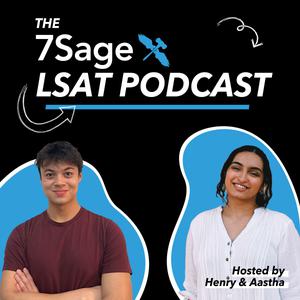 The 7Sage LSAT Podcast
The 7Sage LSAT Podcast
 LSAT Pros
LSAT Pros
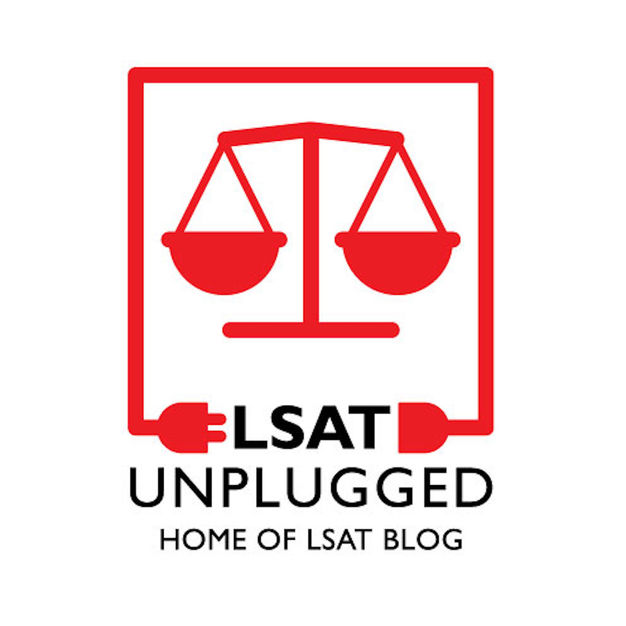 LSAT Unplugged Podcast
LSAT Unplugged Podcast
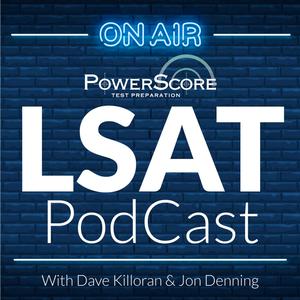 The PowerScore LSAT PodCast
The PowerScore LSAT PodCast
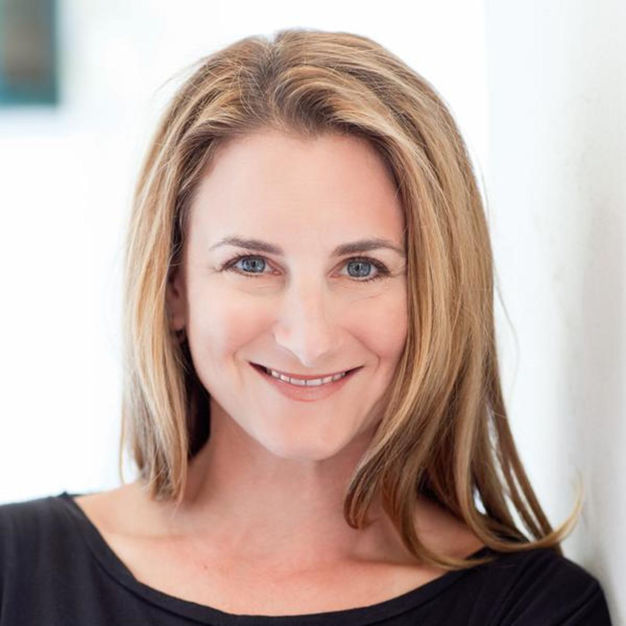 Ann Levine
Ann Levine
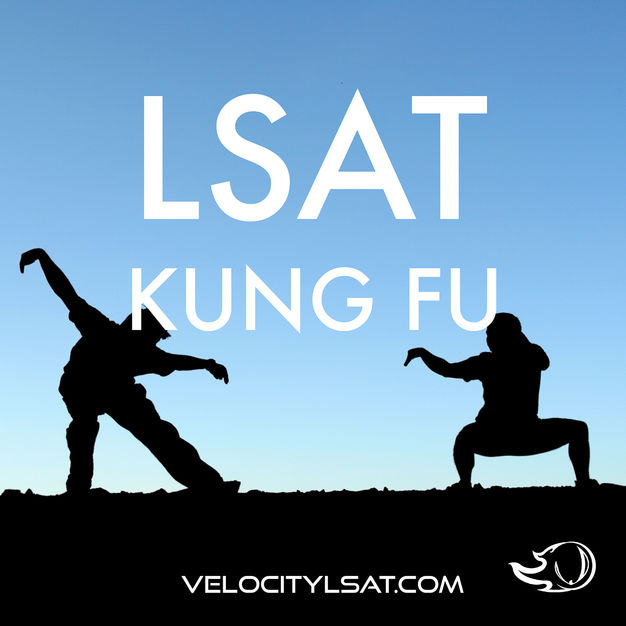 LSAT Kung Fu
LSAT Kung Fu